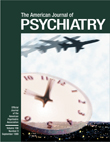Clinton, Sex, and Psychiatry?
To the Editor: President Clinton’s sexual imbroglio has created a large literature of political and legal discussion. Surprisingly, the psychosocial implications of this scandal seem to be barely discussed. Data suggest that 50% to 60% of American men and women have had extramarital sexual activity, although these figures perhaps include single brief encounters. This behavior is not normative or accepted by the betrayed spouse, however, since data suggest that adultery, when exposed to the spouse, leads to divorce in a high percentage of cases (1). The public exposure of President Clinton’s adultery has led already in many of my patients to greatly heightened suspicion and insecurity regarding spousal unfaithfulness. Moreover, patients who confronted and overcame spousal unfaithfulness in their marriage in the past have had recurrences of painful feelings. I hypothesize that the psychological aspects of the resolution of the Clinton imbroglio may have had significant effects on the American family. If Hillary Clinton had forgiven her husband publicly, would this have led to a higher rate of stable open marriages? If President Clinton had been forced to resign, would this have strengthened superego vectors in American male sexuality? Did Ms. Lewinsky’s confused sexuality and its inevitable entanglements serve as a reality check for individuals confronting seemingly innocent sexual temptation? Can we really discuss this issue only in political or legal contexts and ignore possible major psychosocial implications?
1. Shackelford TK, Buss DM: Anticipation of marital dissolution as a consequence of spousal infidelity. J Social and Personal Relationships 1997; 14:793–808Crossref, Google Scholar



